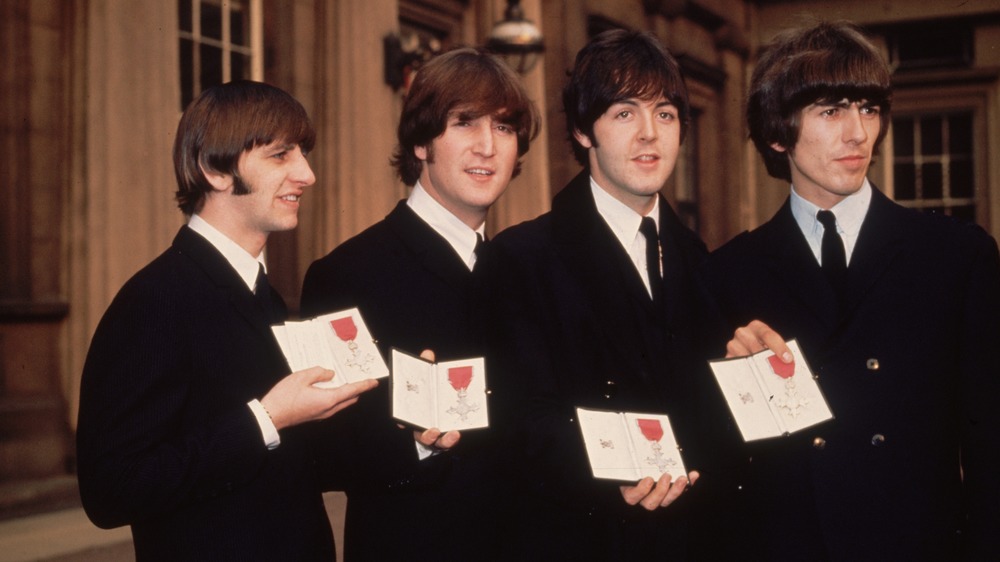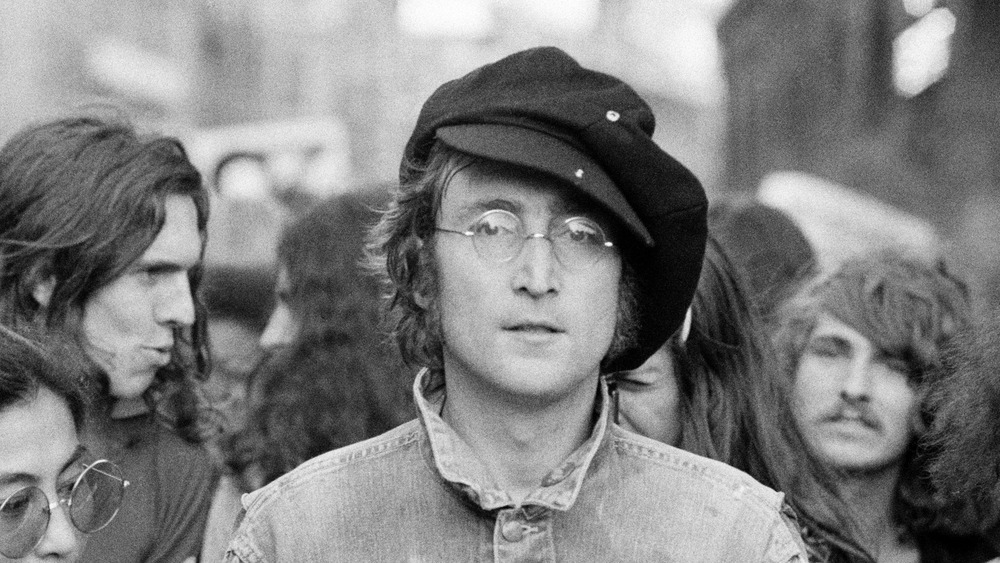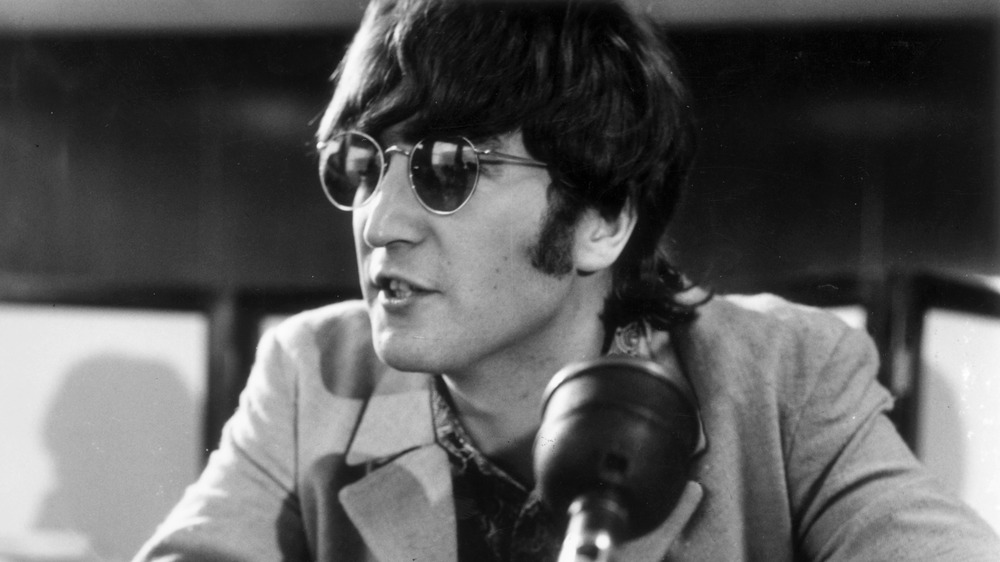The Time The Beatles Caused A Boycott
In March 1966, the London Evening Standard ran a piece entitled "How does a Beatle live? John Lennon lives like this." Its author, a friend of Lennon's named Maureen Cleave, included several remarks the Beatles singer made during a conversation they'd recently had at his Weybridge home. One of the topics they discussed that day was religion.
"Christianity will go," John Lennon said, according to Beatles Interviews. "It will vanish and shrink. I needn't argue about that; I'm right and I will be proved right. We're more popular than Jesus now. I don't know which will go first, rock 'n' roll or Christianity. Jesus was all right but his disciples were thick and ordinary. It's them twisting it that ruins it for me."
The comments made small ripples in England, with a few people writing editorials, but it wasn't any kind of scandal.
"When it came out in England it was a bit of a blab-mouthed saying anyway," John would say in an interview a few months later. "A few people wrote into the papers, and a few wrote back saying, 'So what, he said that. Who is he anyway,' or they said, 'So, he can have his own opinion.' And then it just vanished. It was very small."
However, the comments weren't taken so easily across the pond, where a different kind of Beatlemania began to sweep through the United States.
The backlash almost caused the Beatles to cancel their U.S. tour
Just before the start of the Beatles' 1966 U.S. tour, an American teenybopper magazine called Datebook ran an article with the headline, "John says Beatles are bigger than Jesus." Although John had kind of said something like that, the Datebook headline took Lennon's words out of context, and Christians in the United States, particularly in the Bible Belt, were not happy to hear that this hippie who was influencing all the good, young people of America to up and leave home was now going after Jesus directly. The media hounded the Fab Four at every interview they did. During one press conference in August, John said that they had almost cancelled the tour because of the backlash caused by the remark, which he didn't even remember making.
John tried to clarify what he'd said, telling reporters that he never meant to disparage the religion.
"My views are only from what I've read or observed of Christianity and what it was, and what it has been, or what it could be. It just seems to me to be shrinking. I'm not knocking it or saying it's bad. I'm just saying it seems to be shrinking and losing contact," Lennon said.
However, the outraged religious folks were not placated. And since the U.S. media feeds off public ire like a succubus on a sleeping victim, the backlash soon turned into an all-out Beatle boycott.
The media fanned the flames into a full-on Beatle boycott
The Datebook article was picked up by an Alabama radio DJ named Tommy Charles, who launched a campaign he called "Ban the Beatles." He deemed their music "blasphemous" and refused to play it. From there, the Beatle boycott spread.
Jordan Runtagh of Rolling Stone wrote, "In the heart of Dixie, even the biggest Beatlemaniac had to side with Jesus." He quoted George Harrison, who said that Christians in the South "were having a field day." People organized mass burnings of Beatles albums, apparently unaware that buying them in order to set them on fire would actually drive sales numbers up. A pastor in Cleveland, Ohio, threatened to excommunicate any of his congregants who went to Beatles shows. And of course, since this was the 1960s, the Ku Klux Klan got involved, as well. Alabama Imperial Wizard Robert Shelton claimed the rockers had been brainwashed by communists and lambasted them for their support of civil rights.
Although the boycott wouldn't last forever, the rage that inspired it wasn't over. It lay dormant for over a decade, then came out in one of the ugliest ways possible. As CNN reported in 2015, one person who had been particularly irked by Lennon's "more popular than Jesus" comment was Mark David Chapman, the man who shot and killed John Lennon on December 8, 1980.


